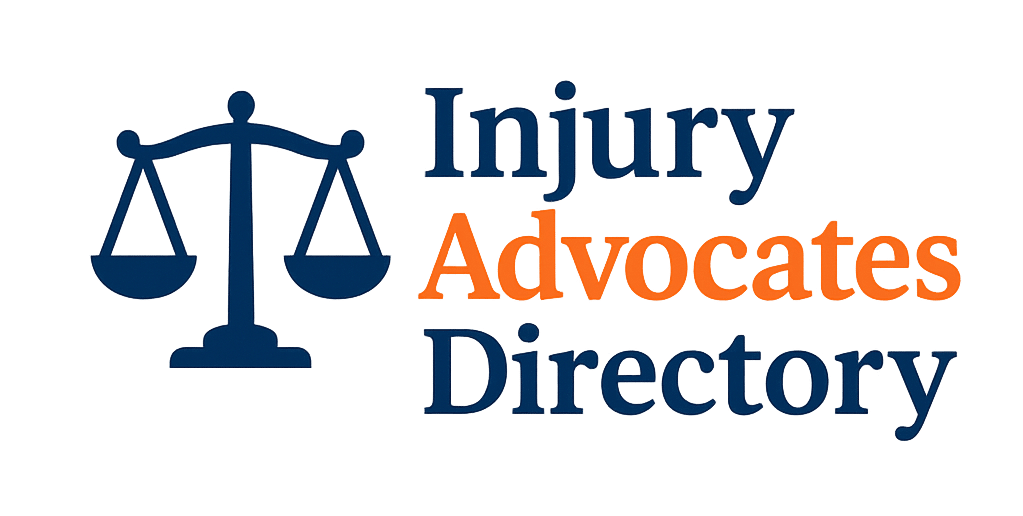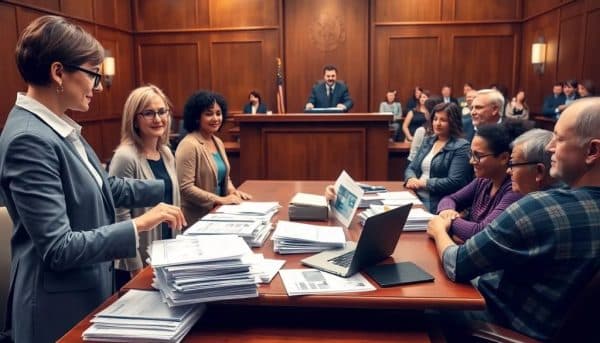The success of a personal injury case heavily depends on the quality and type of evidence presented. Evidence serves as the backbone of establishing liability and the extent of damages. Without robust evidence, claiming compensation for injuries becomes significantly more challenging.
Understanding the importance of evidence in personal injury cases is crucial for anyone navigating through the complexities of legal claims. This article will explore various aspects of evidence and its role in personal injury lawsuits.
What is the importance of evidence in personal injury cases?
Evidence is fundamental in personal injury cases as it supports your claims and arguments. It substantiates the occurrence of an accident and showcases the injuries sustained. In court, the burden to prove the case typically falls on the plaintiff, making strong evidence indispensable.
Moreover, the presence of credible evidence can significantly influence settlement negotiations. Insurance companies tend to offer better settlements when compelling evidence is available, as it indicates a higher likelihood of a favorable outcome in court. Thus, having solid evidence is not just advantageous but essential.
In addition, various types of evidence can illustrate the impact of the injuries on the victim's life. This includes medical records detailing treatment, photographs of the accident scene, and testimony from witnesses. All these elements work together to ensure that the case is presented effectively.
How can you gather and preserve evidence for your claim?
Collecting evidence promptly after an incident is vital. Delays can result in lost information or diminished credibility. Here are some effective strategies to gather and preserve evidence for your claim:
- Document the scene: Take photographs from multiple angles and capture any relevant details.
- Collect witness information: Obtain names and contact details of people who witnessed the incident.
- Keep records: Maintain a detailed log of medical treatments, expenses, and any related communications.
- Utilize technology: Use your smartphone to record videos or take pictures, ensuring a digital backup of evidence.
- Seek expert opinions: Consider hiring professionals who can provide insights or assessments related to your case.
Additionally, preserving evidence is crucial. For instance, medical records should be kept organized and secured while witness testimonies should be recorded while the details are still fresh. The more comprehensive and organized the evidence, the stronger your case will be.
What types of evidence are essential in personal injury cases?
Several types of evidence are deemed essential in personal injury claims. Understanding these can significantly enhance your case:
- Medical records: These documents detail the injuries sustained and the treatment received, providing a clear picture of the impact on the victim.
- Witness testimonies: Eyewitness accounts can corroborate your version of events, lending credibility to your claims.
- Photographic evidence: Images of the accident scene, injuries, or property damage can vividly illustrate the circumstances surrounding the incident.
- Police reports: Official reports from law enforcement can provide an unbiased account of the incident.
- Expert opinions: Testimonies from medical or accident reconstruction experts can clarify complex aspects of the case.
Each type of evidence serves a specific purpose in demonstrating liability and supporting claims for damages. By strategically gathering and presenting these elements, you can create a compelling narrative that enhances your chances of securing a favorable outcome.
How does evidence establish liability and damages?
Establishing liability and damages is at the heart of personal injury cases, and evidence is the key to this process. Liability refers to the legal responsibility for an accident, while damages pertain to the compensation for injuries incurred.
The evidence collected must clearly demonstrate that another party's negligence or wrongdoing led to the incident. For instance, if a driver was speeding and caused an accident, evidence such as speed records, eyewitness statements, and traffic camera footage can establish their liability.
Additionally, evidence plays a critical role in quantifying damages. Medical records and bills are essential for proving the extent of the injuries and the associated costs. Furthermore, documentation of lost wages and alterations to the victim's lifestyle can help in accurately calculating the financial impact of the injury.
Overall, the more substantial the evidence presented, the better the chances of establishing both liability and the extent of damages in a personal injury case.
What challenges might you face with evidence in personal injury claims?
While evidence is crucial, several challenges can arise during the collection and presentation process. Common challenges include:
- Admissibility issues: Not all evidence is automatically admissible in court. Legal standards must be met, and certain types of evidence may be deemed irrelevant or prejudicial.
- Loss of evidence: Evidence can be misplaced or destroyed, especially if not collected promptly. This can severely weaken a case.
- Witness availability: Witnesses may become difficult to locate over time, and their memories may fade, making their testimonies less reliable.
- Insurance company tactics: Insurance companies often try to minimize payouts by challenging the evidence presented, requiring a strong strategy to counteract their efforts.
Navigating these challenges can be daunting. Therefore, having experienced legal representation is invaluable. They can help you collect, preserve, and present evidence effectively, ensuring your case remains strong despite potential hurdles.
How can expert legal representation help with evidence management?
Expert legal representation is critical when managing evidence in personal injury cases. A personal injury lawyer possesses the knowledge and experience necessary to navigate the complexities of evidence laws and practices. Here’s how they can assist:
1. Thorough evidence collection: Lawyers know what evidence is necessary to build a strong case. They can help you gather relevant documents, photographs, and witness statements effectively.
2. Preservation of evidence: Legal professionals have strategies in place to ensure that evidence is preserved and protected from challenges. This includes advising on how to store documents and the importance of timely collection.
3. Expertise in admissibility: An attorney understands the legal standards for evidence admissibility and can ensure that the evidence collected meets these requirements.
4. Negotiation skills: Lawyers can use the evidence effectively during settlement negotiations, maximizing your compensation by leveraging the strength of your evidence.
5. Trial preparation: If the case goes to trial, a skilled attorney will prepare the evidence presentation, ensuring that it is compelling and clear for the jury.
In summary, having expert legal guidance is crucial for managing evidence effectively, enhancing your chances of securing justice and fair compensation in personal injury cases.
Questions related to the importance of evidence in personal injury cases
Why is it important to have evidence when making a claim?
Having evidence is vital when making a claim as it substantiates your allegations and supports your case. It proves the occurrence of the incident and the injuries sustained, establishing a clear link between the two. Without evidence, it becomes challenging to convince the court or insurance companies of the legitimacy of your claims.
Moreover, strong evidence can influence negotiations significantly. Insurance adjusters are more likely to offer fair settlements when presented with compelling evidence. Therefore, having well-documented evidence is essential for maximizing your compensation.
What is the burden of proof for personal injury?
The burden of proof in personal injury cases typically falls on the plaintiff, meaning that you must prove your claims for compensation. This involves demonstrating that the defendant was negligent and that their actions directly caused your injuries.
In most cases, the standard of proof required is known as "preponderance of the evidence," which means that your claims must be more likely true than not. This standard is lower than in criminal cases, but it still requires a significant amount of credible evidence to support your case.
What evidence is needed to prove damages?
To prove damages in a personal injury case, you will need various types of evidence that illustrate both the extent of your injuries and the financial impact they have caused. This includes:
- Medical records that document treatments and diagnoses.
- Bills related to medical expenses and rehabilitation.
- Lost wage statements from your employer showing income lost due to the injury.
- Testimonies from medical professionals regarding your condition and prognosis.
Collectively, this evidence will help establish the overall impact of the injuries on your life and facilitate the calculation of fair compensation.
What is the meaning and importance of evidence in a lawsuit?
In a lawsuit, evidence refers to any material presented to support the allegations made by either party. It is crucial because it helps the court make informed decisions based on factual information rather than mere assertions.
The importance of evidence cannot be overstated; it is the foundation upon which legal arguments are built. In personal injury cases, strong evidence can determine the outcome by establishing liability and the extent of damages. Ultimately, the quality of evidence often reflects the strength of a case, influencing both legal proceedings and settlement negotiations.

